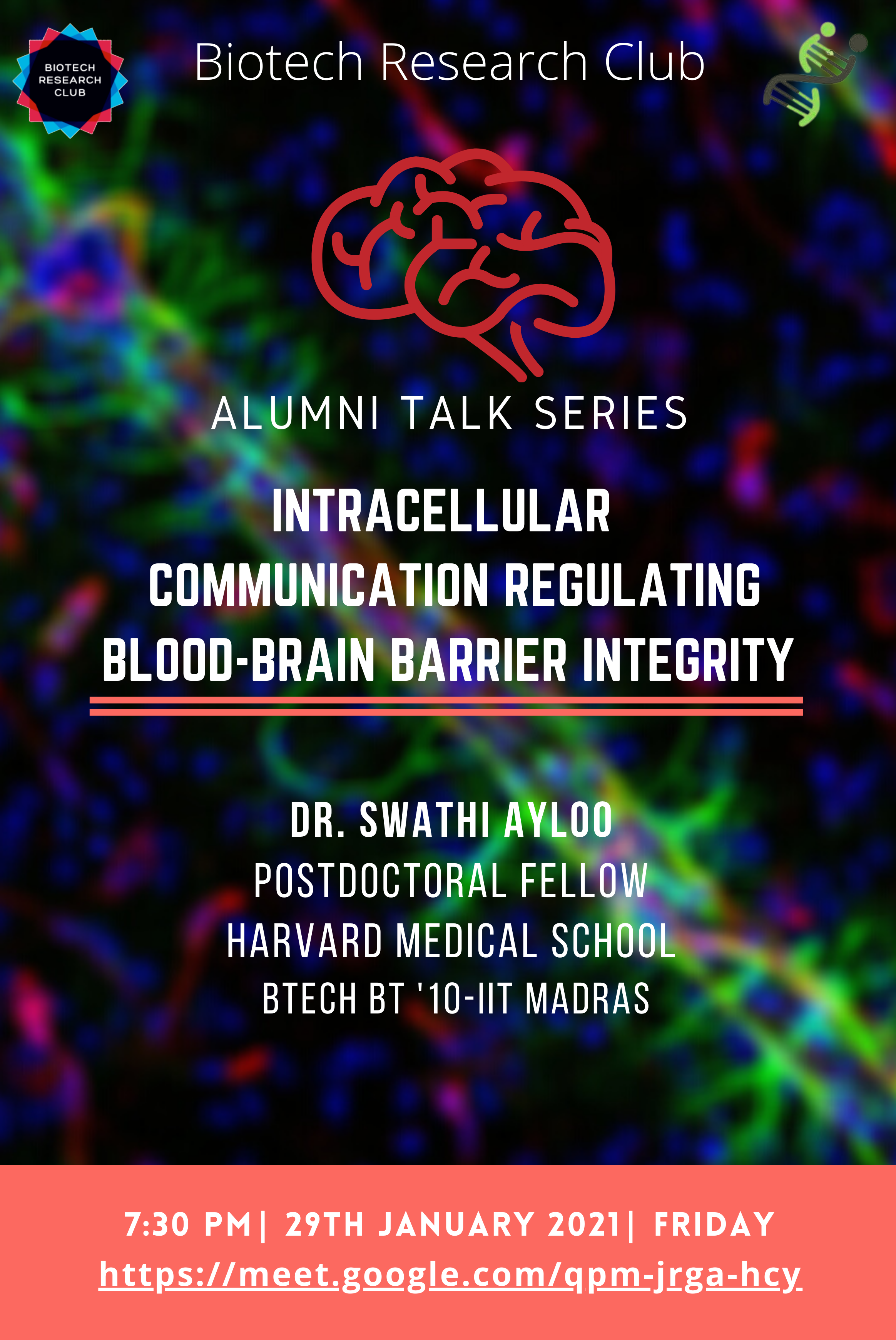Intracellular communication regulating Blood-Brain Barrier Integrity

Abstract
Blood-central nervous system (CNS) barriers are functional interfaces separating the neural tissue from circulating blood and are essential for neuronal function and cellular homeostasis. Endothelial cells forming the walls of the blood vessels make up these barriers. Barrier properties are not intrinsic to CNS endothelial cells, but rather, are induced by the underlying microenvironment of the tissue. The specific extrinsic factors from perivascular cells that regulate barrier formation are, however, largely unknown. Here, I present a brief overview of our current understanding of how perivascular cells induce barrier properties in the CNS and provide some of our current findings in this area.
Biography of the speaker
Dr. Ayloo did her undergraduate degree at IIT Madras in the Dept. of Biotechnology and went on to do a Ph.D. at the University of Pennsylvania. Her research thesis was focused on understanding transport mechanisms at the single-molecule level as well as within cells. She also developed and implemented tools to optogenetically manipulate trafficking within neurons to better understand regulatory mechanisms of molecular transport in the nervous system. She is currently doing a postdoc at Harvard Medical School working at the interface of neuronal and vascular biology, focusing on the blood-brain barrier.